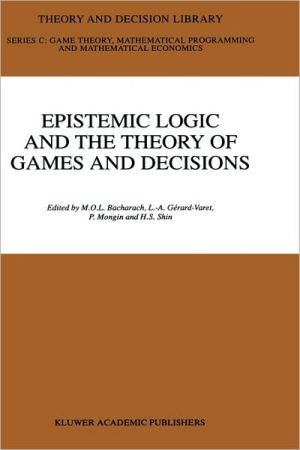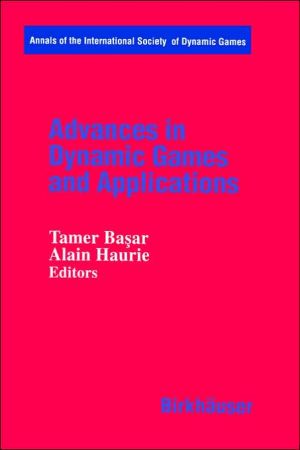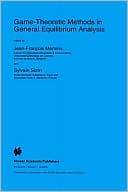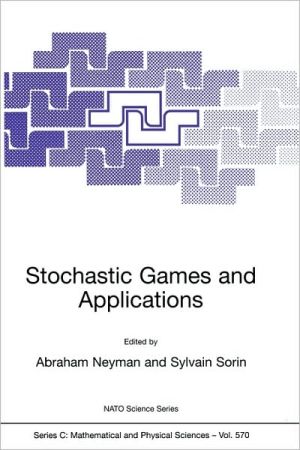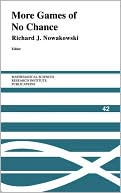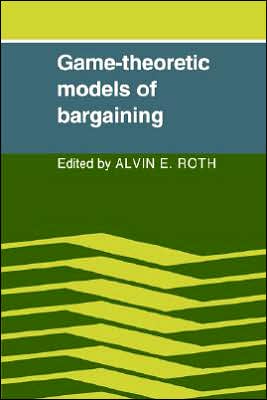Epistemic Logic and the Theory of Games and Decisions
The convergence of game theory and epistemic logic has been in progress for two decades and this book explores this further by gathering specialists from different professional communities, i.e., economics, mathematics, philosophy, and computer science. This volume considers the issues of knowledge, belief and strategic interaction, with each contribution evaluating the foundational issues. In particular, emphasis is placed on epistemic logic and the representative topics of backward...
Search in google:
The convergence of game theory and epistemic logic has been in progress for two decades and this book explores this further by gathering specialists from different professional communities, i.e., economics, mathematics, philosophy, and computer science. This volume considers the issues of knowledge, belief and strategic interaction, with each contribution evaluating the foundational issues. In particular, emphasis is placed on epistemic logic and the representative topics of backward induction arguments and syntax/semantics and the logical omniscience problem. Part I of this collection deals with iterated knowledge in the multi-agent context, and more particularly with common knowledge. The first two papers in Part II of the collection address the so-called logical omniscience problem, a problem which has attracted much attention in the recent epistemic logic literature, and is pertinent to some of the issues discussed by decision theorists under the heading `bounded rationality'. The remaining two chapters of section II provide two quite different angles on the strength of S5 (or the partitional model of information)- and so two different reasons for eschewing the strong form of logical omniscience implicit in S5. Part III gives attention to application to game theory and decision theory. Booknews Furthers the convergence of the two fields over the past two decades by gathering specialists from economics, mathematics, philosophy, and computer science to evaluation the foundational issues underlying knowledge, belief, and strategic interaction. They emphasize epistemic logic and the representative topics of backward induction arguments, and syntax and semantics in the logical omniscience problem. The core of the 15 papers were presented at a January 1994 conference in Marseilles, but others have been added to flesh out a thorough and accurate accounting of the field of research; all have been refereed and revised at several stages. Among the topics are the logic of common belief and common knowledge, awareness and partitioned informational structures, an axiomatic approach to logics for non- omniscient agents, and analyzing games by sequences of metatheories. No index. Annotation c. by Book News, Inc., Portland, Or.
PrefaceContributing AuthorsIntroduction1On the Logic of Common Belief and Common Knowledge32A Complete Epistemic Logic for Multiple Agents353Axiomatic Indefinability of Common Knowledge in Finitary Logics694Eliminating Redundancies in Partition Spaces955From Logical Omniscience to Partial Logical Competence1076Knowledge and Belief Representation in a Partial Model1297Awareness and Partitional Informational Structures1518Representing the Knowledge of Turing Machines1699Logics for Nonomniscient Agents: An Axiomatic Approach19310Alternative Definitions of Knowledge21711Synchronic Information, Knowledge and Common Knowledge in Extensive Games23512Analyzing Games by Sequences of Metatheories26513Rationally Justifiable Play and the Theory of Noncooperative Games29314The Epistemic Structure of a Theory of a Game30315On the Evaluation of Solution Concepts345
\ BooknewsFurthers the convergence of the two fields over the past two decades by gathering specialists from economics, mathematics, philosophy, and computer science to evaluation the foundational issues underlying knowledge, belief, and strategic interaction. They emphasize epistemic logic and the representative topics of backward induction arguments, and syntax and semantics in the logical omniscience problem. The core of the 15 papers were presented at a January 1994 conference in Marseilles, but others have been added to flesh out a thorough and accurate accounting of the field of research; all have been refereed and revised at several stages. Among the topics are the logic of common belief and common knowledge, awareness and partitioned informational structures, an axiomatic approach to logics for non- omniscient agents, and analyzing games by sequences of metatheories. No index. Annotation c. by Book News, Inc., Portland, Or.\ \
